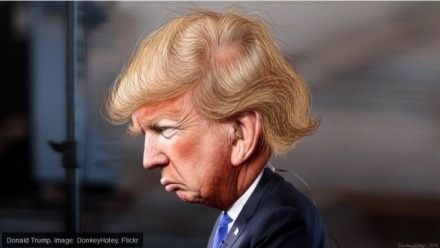Trump’s assertiveness vs Rouhani’s resistance

by Amin Saikal
16 August 2018
President Donald Trump has acted to diminish the Iranian Islamic regime over its nuclear program, missile industry and regional influence. He has given Tehran an ultimatum either to succumb to his demands or face unprecedented punishment. Iranian President Hassan Rouhani has rejected Trump's actions to withdraw from the July 2015 multilateral nuclear agreement (officially known as the Joint Comprehensive Plan of Action - JCPOA), and to reimpose sanctions as "psychological warfare". The US and Iran are now locked in a diplomatic confrontation that could lead to a confrontation with devastating consequences.
Ironically, this is the first time in the history of US-Iranian hostilities since the advent of the Iranian Islamic regime nearly 40 years ago that Washington, rather than Tehran, is isolated in world politics as a result of an American president's actions. Not only the other signatories to the JCPOA - Britain, France, Germany, Russia and China - but also most of the other states in the world have sided with Tehran. The European signatories and America's traditional allies have taken extraordinary steps to salvage the JCPOA. They have gone so far as to invoke an old "blocking statute" to protect their countries' businesses dealings with Iran and have instructed their companies either to defy American sanctions or run the risk of being sued by European Union member states. They have also opened a mechanism to enable those businesses affected by sanctions to sue the American government in the national courts of member states.
Whatever the European powers' measures and the degree of sanction defiance by Russia and China as the other two strong supporters of Iran, as well as the Iranian government's efforts to circumvent the sanctions, as it has in the past, Trump's actions can still entail serious economic and political implications for Iran. The Iranian economy was in a fragile state prior to the reimposition of sanctions; it is now bound to receive more hard blows. This in turn is likely to increase public disenchantment with and protests against the Islamic regime.
However, the Islamic regime is unlikely to be brought to its knees, for four important reasons. The first is that Iran has endured soft and hard sanctions since the early days of its transformation into an Islamic Republic following the Iranian revolution of 1978-79 that resulted in the overthrow of the Shah's pro-Western monarchy. The regime has vigorously diversified Iran's economy and trade. It has succeeded in making the Iranian economy less dependent on oil exports, and has expanded trade relations with friendly powers, including China, which has become Iran's largest trade partner. It has engaged in processes of self-sufficiency and mastered different methods of sanction-busting, including barter trading, and transactions through third countries where it wields influence, such as Iraq, Afghanistan and Lebanon.
The second is that despite its theocratic and administrative shortcomings and corrupt practices, the regime is well entrenched. It has built sufficient coercive instruments of power to deal with any widespread public uprisings. The clerical forces and their associates that dominate the power structure have done everything possible to guard themselves against a revolution similar to the one that caused the Shah's downfall and brought them to power.
The third is that the regime has successfully used the "threat" from the United States and its regional allies, Israel in particular, for public legitimation and mobilisation, and this factor remains at its disposal. Many segments of the Iranian society are unhappy with the regime and may well desire a better alternative, but when Iran is threatened by an outside force, a majority of them have rallied behind the government of the day. The more that Trump pressures and threatens Iran, the more he plays into the hands of the regime to invoke a combination of historically fierce nationalism and Shia Islamic devotion among the Iranians.
The fourth is that in the unlikely event of the Islamic regime crumbling through popular uprisings, this will not serve the interests of the United States and its regional allies. It could produce uncontrollable outcomes for not only Iran but also the region. The regime's removal without a smooth power transition could generate a much worse national and regional situation than did the overthrow of the Shah's autocracy.
The Trump leadership, egged on by Iran's arch enemy, Israel, and backed by another regional rival, Saudi Arabia, has touted the use of force as an ultimate means to change the behaviour of the Iranian regime. However, Tehran has secured a strong deterrence against such an option as well. It has garnered adequate prowess though a combination of hard and soft power within an asymmetrical warfare strategy to make an attack very costly for its perpetrator. It has secured a network of regional protégé forces that includes most importantly the Lebanese Hezbollah, which possesses some 120,000 rockets of all kinds, capable of hitting targets in Israel and across the region. This deterrence factor should make the US and Israel think twice before they resort to the use of force.
Trump has sought to subdue the Iranian regime, but at the cost of America's isolation from even its traditional European allies. The US has become an oddity in world politics. This had never happened since the rise of the US to globalism following the Second World War.
Amin Saikal is Distinguished Professor and Director of the Centre for Arab and Islamic Studies (the Middle East and Central Asia) at the Australian National University, and author of forthcoming book Iran Rising: The Survival and Future of the Islamic Republic by Princeton University Press.









